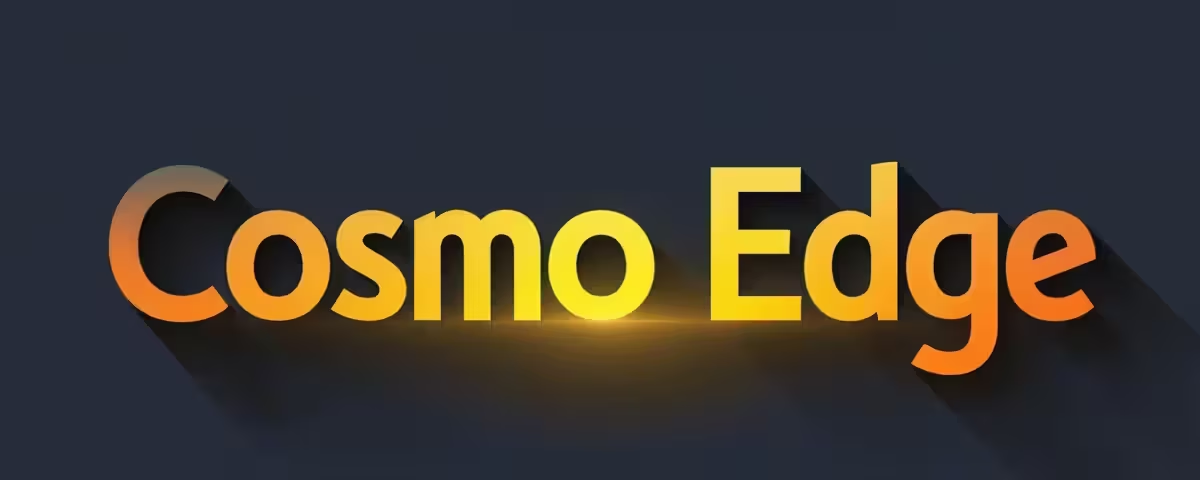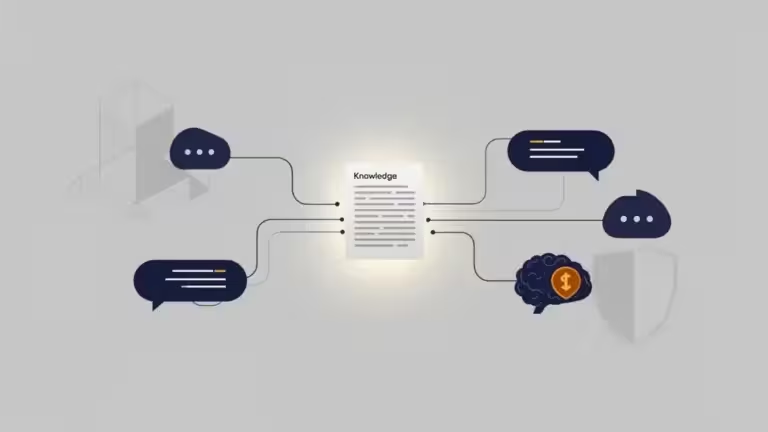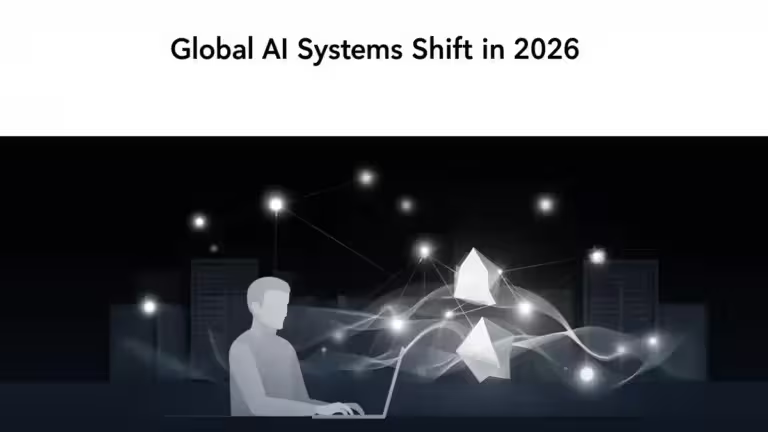Pomelli AI: Google bets on automated marketing for small businesses
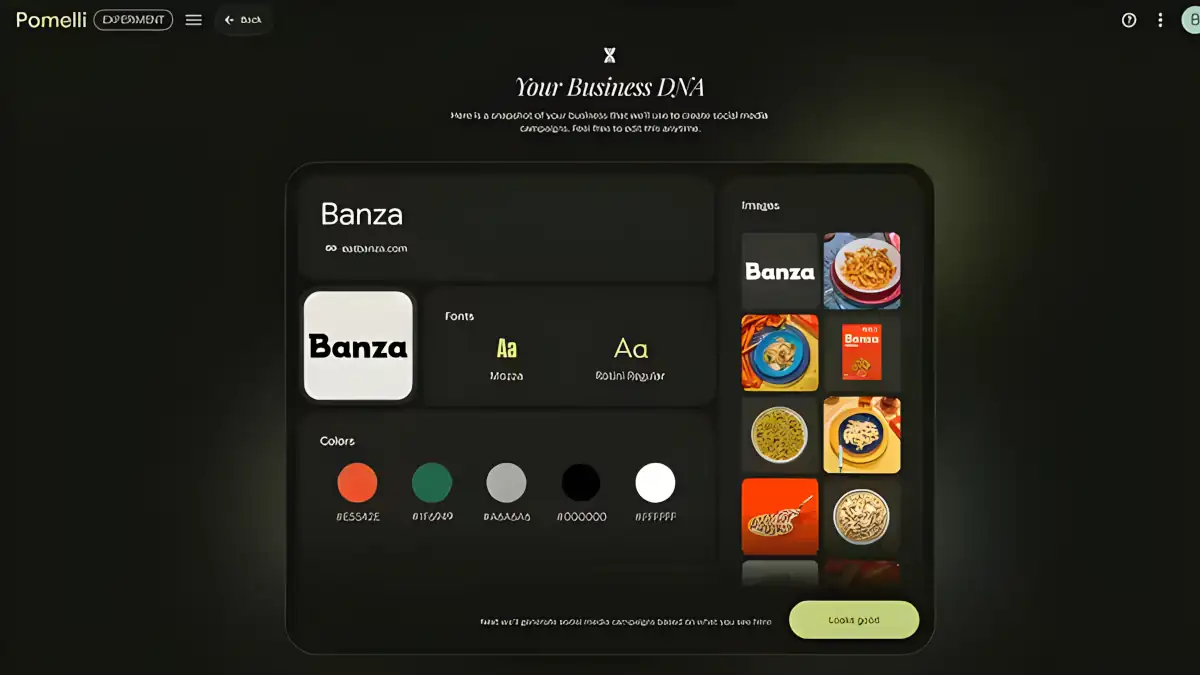
Artificial intelligence is now embedded at the core of digital marketing. With Pomelli AI, Google Labs and DeepMind introduce a tool designed to automate campaign creation for small and medium-sized businesses (SMBs). Presented in late October 2025, this experimental project reflects Google’s ambition to democratize brand communication through AI marketing automation, without requiring design or marketing expertise.
A new AI marketing tool from Google Labs and DeepMind
An experiment born in Google Labs
Pomelli AI continues the line of Google Labs experimental projects. Still in public beta, the platform is not yet a commercial product but rather a testbed to validate a concept: automating brand consistency for SMBs. According to ZDNet, Pomelli allows any business to generate “ready-made” AI-generated campaigns directly from its website.
The tool primarily targets small organizations such as freelancers, artisans, and startups, which often lack marketing resources. For now, the deployment remains limited to four English-speaking markets: the United States, Canada, Australia, and New Zealand.
DeepMind’s contribution to the AI model
Pomelli is the result of close collaboration between Google Labs and DeepMind. The project leverages DeepMind’s expertise in AI content generation, combining text, image, and potentially video synthesis. Analysts cited by The AI Economy suggest that Pomelli relies on Google’s in-house models like Gemini, Imagen, and Veo, although this has not been officially confirmed. This integration hints at a real-world test of synergy between Google’s AI ecosystem and its generative technologies.
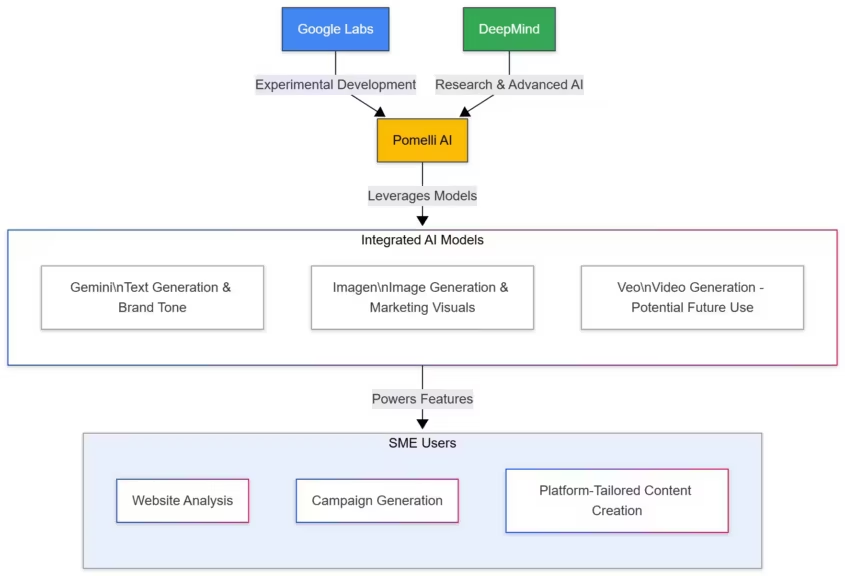
Why Google targets small businesses with Pomelli AI
The challenge for SMBs: brand consistency and lack of resources
Small businesses face a well-known issue: maintaining brand coherence without a dedicated marketing team. Data reported by Unite.ai shows that nearly 73% of small businesses struggle to keep a consistent visual identity across platforms. Pomelli AI aims to solve this by offering a simple and accessible solution that aligns with the company’s existing brand image.
The automation bet: democratizing digital marketing
Google’s goal is clear: make digital marketing accessible through AI automation. Unlike Canva or Adobe Express, where users manually configure visuals, Pomelli automatically extracts brand identity from a company’s website. According to TechRadar, this approach “removes the technical barrier for small businesses,” while ensuring professional and consistent results.
Pomelli AI key features
The system’s core: the “Business DNA” profile
Pomelli’s core innovation lies in creating an automated brand profile called Business DNA. By analyzing a company’s website and visuals, the AI identifies its colors, fonts, tone, and visual style, forming the foundation for every generated campaign.
As Skywork.ai explains, this process takes 30 to 90 seconds, producing a unique visual footprint without any manual intervention.
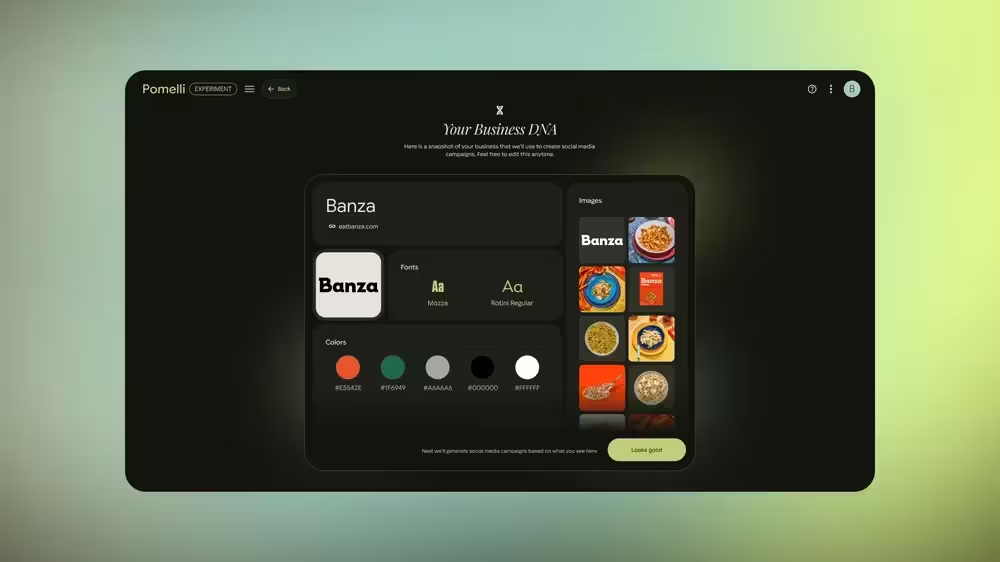
Platform-specific content generation
Once the Business DNA is established, Pomelli generates AI-optimized content tailored for each platform: Instagram, LinkedIn, X (formerly Twitter), Facebook, and web banners. According to Future.Forem, the tool automatically adapts text and visuals to meet each platform’s format and tone.
Tests reported by Skywork.ai indicate an average generation time of 60 seconds for ten post variations, a fast result for a product still in development.
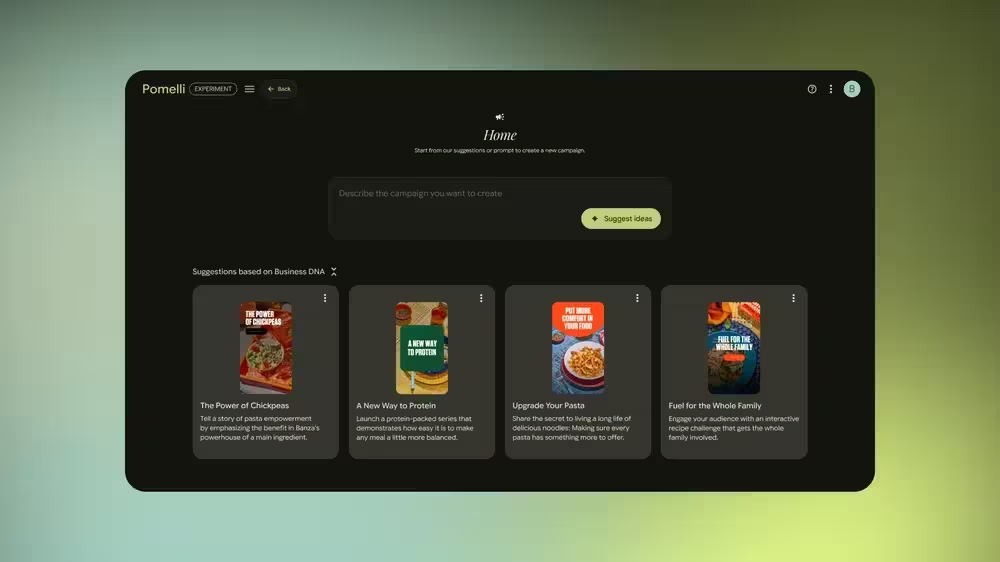
A three-step AI workflow
The Pomelli workflow is intentionally simple:
- Website analysis (Business DNA)
- Campaign idea generation based on marketing goals
- Content creation (visual and textual assets ready for export)
This frictionless structure shows Google’s intent to offer a complete AI creative assistant, minimizing human workload while maintaining brand integrity.
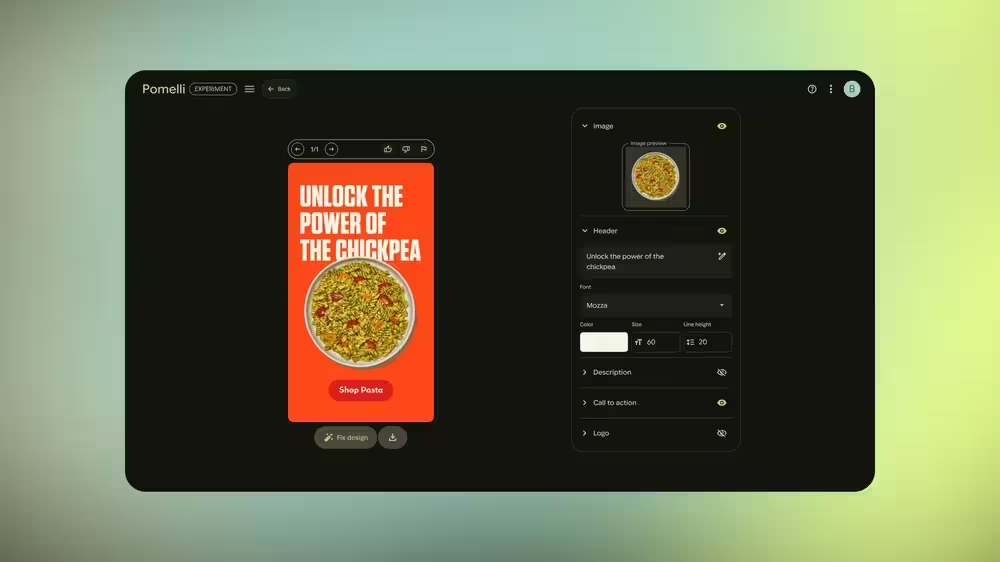
The limitations of a beta-stage project
Limited availability in four English-speaking countries
At this stage, Pomelli AI is available only in English and restricted to four countries. This limitation reduces its global impact, especially in Europe, where the SMB market is highly active. According to Analytics Insight, Google has not yet shared any roadmap for international expansion.
No direct integration or publishing automation
Pomelli currently lacks API integration and direct publishing capabilities to social platforms. Users must manually download visuals and post them themselves. Promptus.ai notes that this is “typical of Google Labs experiments in early testing” but could change if Pomelli connects to services like Google Ads or Workspace.
Data handling and privacy concerns
Neither Google Labs nor DeepMind have disclosed details about user data management or content ownership. This lack of transparency raises questions, especially in regions governed by privacy regulations such as the GDPR. As StartupHub.ai reminds, the “early experiment” label implies that the project may evolve or be discontinued based on user feedback.
Pomelli vs competitors: Canva, Jasper, Adobe Express
A simplified approach over a full creative suite
Pomelli differentiates itself with its minimalist design philosophy. While Canva and Adobe Express target creative professionals, Pomelli focuses on speed and automation. Skywork.ai highlights that this simplicity allows entrepreneurs to create AI-generated content without prior training, though it limits advanced customization options.
The advantage of being free, for now
Pomelli is currently free during its beta phase. However, as AIbase points out, Google has provided no information about its future business model. Analysts speculate a potential integration into the Google ecosystem, but nothing is confirmed. This free phase mainly helps Google measure adoption before considering monetization or deeper integration.
Outlook: a lab for the future of AI marketing
A showcase for DeepMind’s AI research
Pomelli also serves as a technological demonstrator. By combining AI text generation, image synthesis, and web analysis, it illustrates how models like Gemini, Imagen, and Veo can collaborate in real-world marketing use cases. Analytics Insight considers this synergy an important step toward the convergence of AI research and productization.
Toward an automated Google marketing ecosystem?
Pomelli could eventually join other professional tools in the Google suite. Analysts envision potential links with Google Ads, Business Profile, or Workspace, although no official roadmap exists yet. For now, the project remains a functional prototype, closer to a public experiment than a direct competitor to established players like Canva or Jasper.
| Criteria | Pomelli AI (Google Labs) | Canva | Jasper AI |
|---|---|---|---|
| Ease of use | Very high: minimalist interface, fully automated | High, but requires manual setup | Medium: text-based, content-oriented interface |
| Automation | Strong (website analysis and campaign generation in 3 steps) | Moderate (AI assistance but manual guidance) | Strong (text generated automatically from prompts) |
| Integration | Low: no API or direct publishing | Good: integrations with Meta, Google Drive, etc. | Excellent: HubSpot, WordPress, and API connectors |
| Target audience | SMEs without marketing teams | Creatives and small businesses | Marketers and agencies |
| Pricing (2025) | Free (beta) | Freemium | Paid |
Conclusion: a promising yet uncertain AI experiment
With Pomelli AI, Google explores a strategic direction, aiming to make automated marketing accessible to small businesses. The tool impresses with its simplicity, its ready-to-use approach, and its innovative Business DNA concept. Yet, its usefulness remains limited by the lack of integrations, restricted availability, and uncertainty around data privacy.
The key question is whether Pomelli will evolve into a sustainable product or remain a temporary Google Labs prototype. Either way, the experiment illustrates a major trend: the industrialization of marketing through artificial intelligence, where algorithms are shaping the way businesses communicate.
Sources and references
Technology media
- Analytics Insight – November 3, 2025
- TechRadar – November 3, 2025
- ZDNet – October 29, 2025
- Unite.ai – October 28, 2025
- Future.Forem – October 29, 2025
- Skywork.ai – November 1, 2025
Companies
- Google Labs – official product page
- DeepMind – Google’s AI division
Institutions and analyses
- StartupHub.ai – October 27, 2025
- The AI Economy – October 27, 2025
- AIbase – October 28, 2025
- Promptus.ai – November 2, 2025
Your comments enrich our articles, so don’t hesitate to share your thoughts! Sharing on social media helps us a lot. Thank you for your support!
